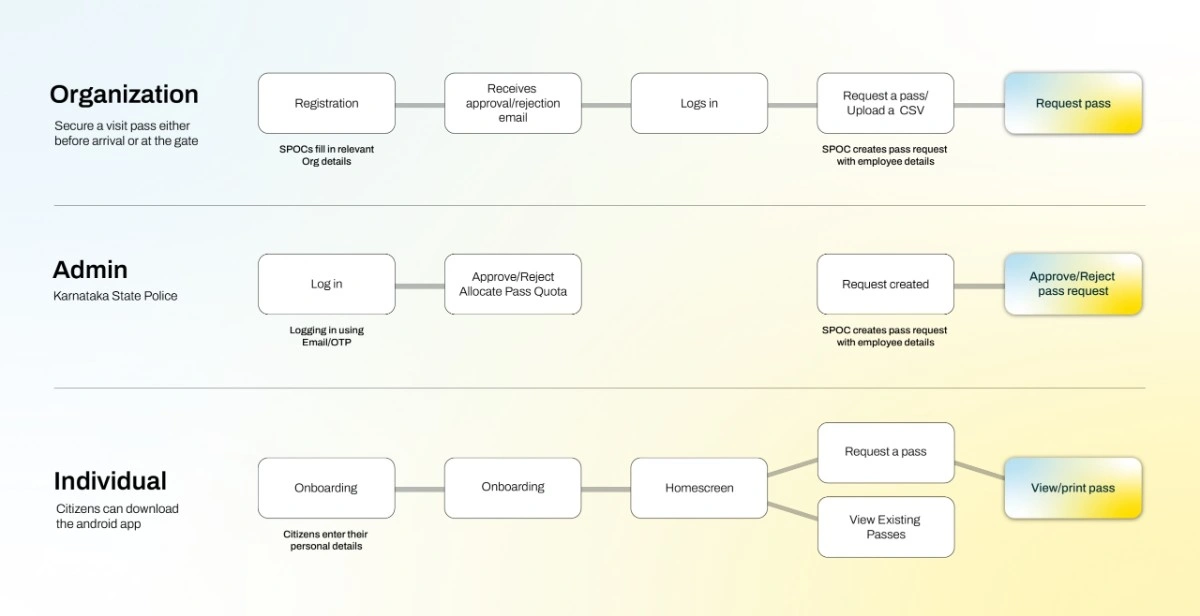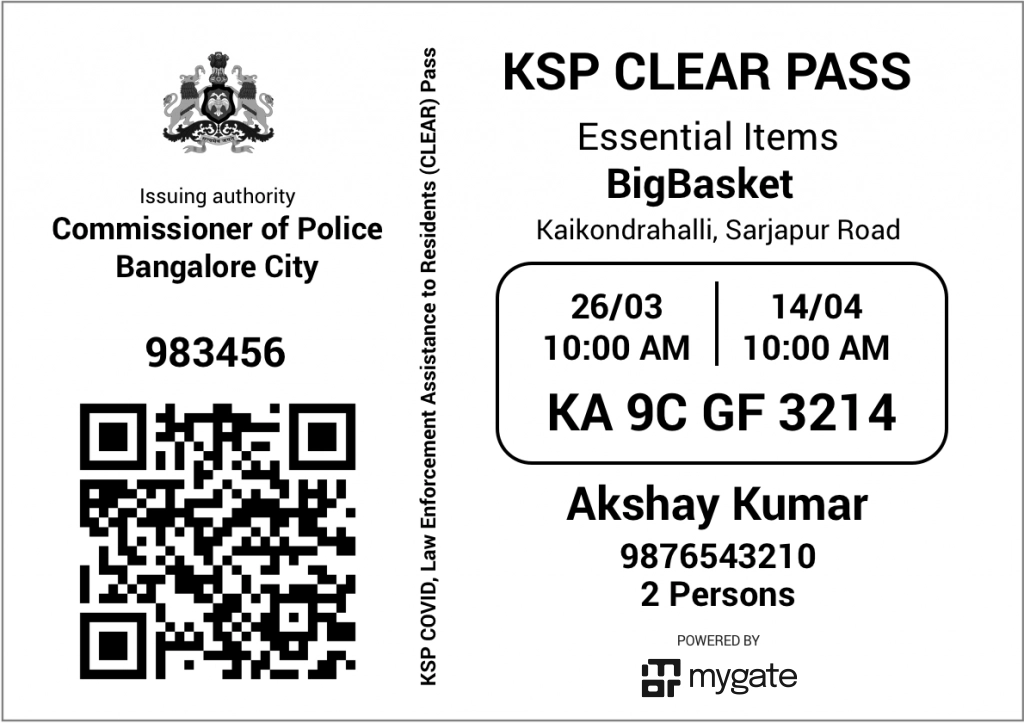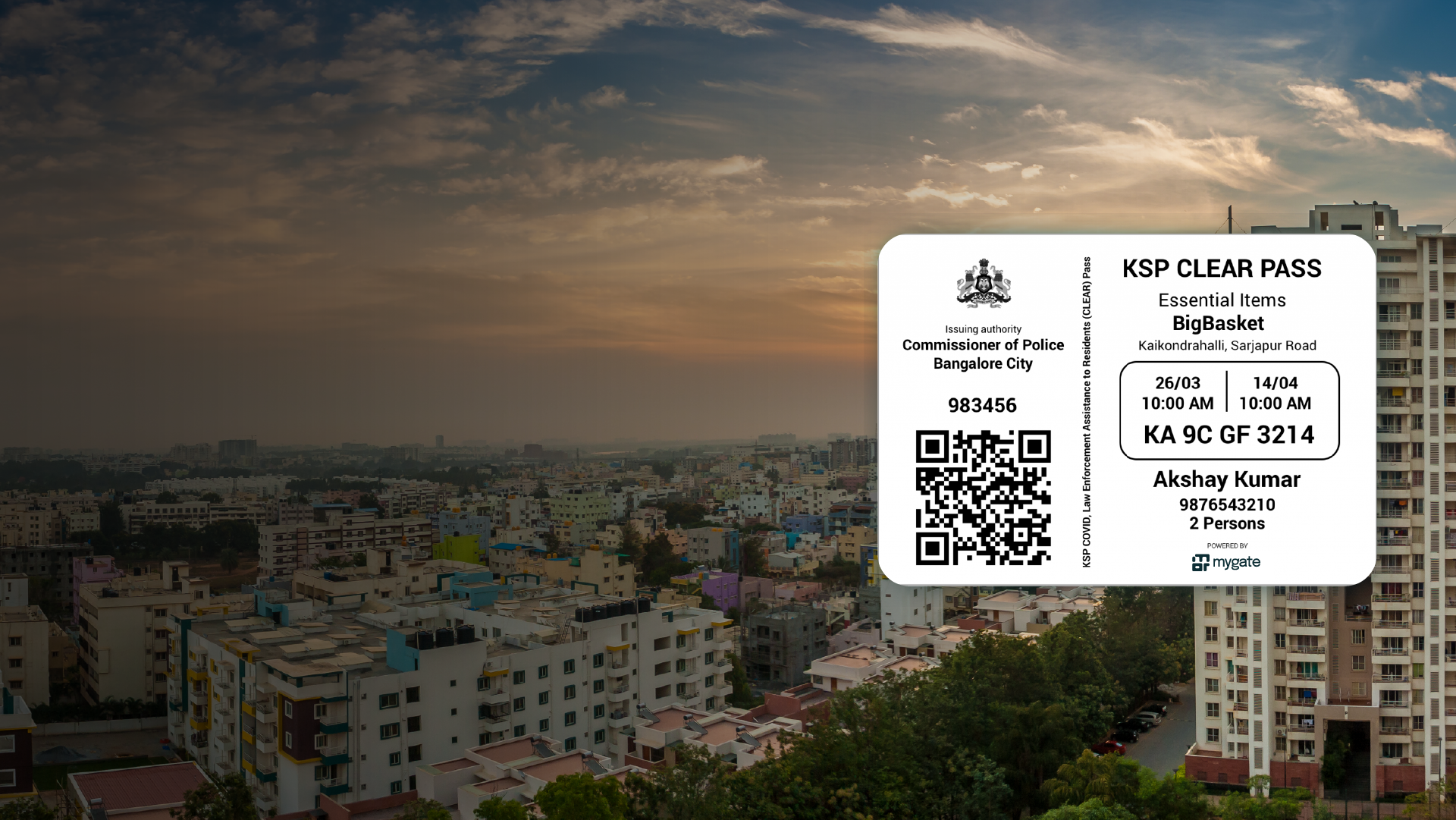Unprecedented times require unprecedented measures
On March 25, 2020, the Government of India announced a 21-day nationwide lockdown to contain the spread of COVID-19. While the order came from the Center, its execution was left to the states. Across the country, state governments were suddenly confronted with a crisis of a scale and kind they had never dealt with before.
One of the most pressing challenges was balancing two conflicting needs: enforcing the lockdown while also ensuring the uninterrupted movement of essential services like groceries, healthcare workers, delivery agents, e-commerce staff, and others. How do you allow critical workers to move, while preventing misuse of that privilege?
The answer was to issue passes for movement. But issuing physical passes created its own set of problems. Citizens had to go to police stations to apply, which ironically required them to step out of their homes in the first place. Crowds built up outside stations, increasing the risk of infection among citizens and law enforcement alike. The system was slow, unsafe, and already buckling under pressure. It was clear that a technology-driven solution was the only way forward.
It all started when the State Police called
That’s when the Karnataka State Police reached out to Mygate. A senior officer asked if we could build an e-pass solution for essential services & do it in just four days.
We said yes.
At Mygate, our expertise lies in managing and validating visitor entries into gated communities and corporate spaces. Every month, our systems validate over 60 million entries. Our presence spans more than 1.5 million homes, about the same as the total number of households in New Zealand. Scale was never the issue; we had already built for it.
The real challenge was time. We had to design, build, test, and release a secure and scalable solution in 96 hours.
Problem turned upside down
In a typical Mygate society, a visitor requests entry, and the resident approves or denies the request. For the Clear Pass system, the flow flipped entirely.
Here, citizens or employees needed permission to leave their homes and travel to their workplaces. Instead of managing who could come into a community, we had to manage who could step out. The principle was familiar, but the direction was reversed and it had to work across thousands of organizations and lakhs of citizens, all at once.
Breaking it down into four parts
To keep the challenge manageable, we broke the problem into four distinct parts:
- Allow organizations and individuals to request a pass.
- Enable police authorities to approve or deny requests.
- Provide citizens with a digital or physical pass they could carry.
- Give on-ground authorities a reliable mechanism to validate passes.
This framework gave us clarity and guided every decision we made.

Product Engineering and Design Considerations
Building under such tight deadlines meant we had to be ruthless about priorities. A few principles anchored our approach:
- Resources and time: The solution had to be simple enough to build within four days, without unnecessary complexity.
- Use existing systems: Wherever possible, we would leverage Mygate’s existing infrastructure: apps, web applications, and dashboards, tweaking them to fit new requirements.
- Scalability: The solution needed to handle thousands of organizations and lakhs of citizens without breaking down.
- Seamless and secure: It had to be easy for organizations to request passes, for citizens to carry them, and for authorities to validate them all while preventing misuse.
War Time
The word “wartime” was used often during those weeks, but in our case, it was literal. We were working in crisis mode, against an immovable deadline. We had just 96 hours to go from ideation to release.
This meant investing enormous resources across leadership, product, engineering, and design, all working in parallel. Decisions that would normally take days were made in minutes. Once we agreed on the basic specifications, teams moved independently to execute their parts.
Execution
Coordinating such a massive effort under lockdown conditions was its own challenge. Everyone was working from home, relying on whatever communication tools were available: Google Meet, Zoom, Hangouts, WhatsApp.
It felt like an extended hackathon. From founders to engineers, everyone rolled up their sleeves. We began with a 2–3 hour brainstorming session to define what the “plain vanilla” product would look like. From that session came an exhaustive list of specifications. At midnight, work began in earnest.
We organized ourselves into multiple digital “war rooms”. Each war room had its own Google Meet link, and by the end of the four days, many of us could recite them from memory. Despite the chaos, the structure kept everyone aligned.
Product Specifications
After intense discussion, the specifications crystallized into four core builds:
- A web application for companies to register and log in to request passes for employees.
- Super Admin and Admin roles within the web app to approve or reject requests.
- An Android app for individuals to apply for passes and view or print them once approved.
- A checker app for authorities that could scan QR codes embedded in passes, even offline, to verify authenticity.
Products
KSP CLEAR Pass Web Application
The web app was designed with three key functions:
- Allow organizations to register and request passes.
- Provide police authorities with tools to approve or deny requests.
- Generate reports on approvals and rejections, broken down by jurisdiction or city.
KSP CLEAR Pass for Individuals

The Android app enabled individuals to apply for passes directly. Once approved, they could carry the pass digitally or print a physical copy, ensuring accessibility for everyone.
KSP Checker App
To prevent misuse, we built a separate app for police authorities. Passes included a QR code that could be scanned offline to verify authenticity, critical for areas with limited connectivity.
Additional Products we built for the Karnataka State Police
As the lockdown evolved, new requirements emerged. Because of the flexible framework we had built, we were able to quickly roll out two more solutions:
- Inter-State Pass: For individuals who need to travel across state borders for emergencies.
- Inter-District Pass: For people who need to move between districts.
Both were built by extending the existing framework, ensuring consistency and speed.
Result
In just 96 hours, we shipped the product. Some of us barely slept, working long nights to hit the deadline. But the results were worth it.
KSP CLEAR Pass became an essential tool for the city. Organizations and citizens embraced it quickly. Essential e-commerce services resumed within Bengaluru far sooner than in many other parts of the country. The system allowed the city’s economy to restart while maintaining safety and order.
Conclusion
The Clear Pass project was unlike anything we had done before. It forced us to push our capabilities to the limit, building a comprehensive, scalable, secure system in just four days.
The experience showed us what is possible when urgency, trust, and focus align. For Mygate, it was an opportunity to extend our mission beyond gated communities and into the service of an entire city during its most difficult days.
For the Karnataka State Police, it was a critical tool to manage an unprecedented crisis. And for the citizens of Bengaluru, it was a lifeline that allowed essential services to continue, safely and efficiently.
Looking back, Clear Pass was not just a product. It was a reminder of why we build: to solve real problems, when they matter most.


